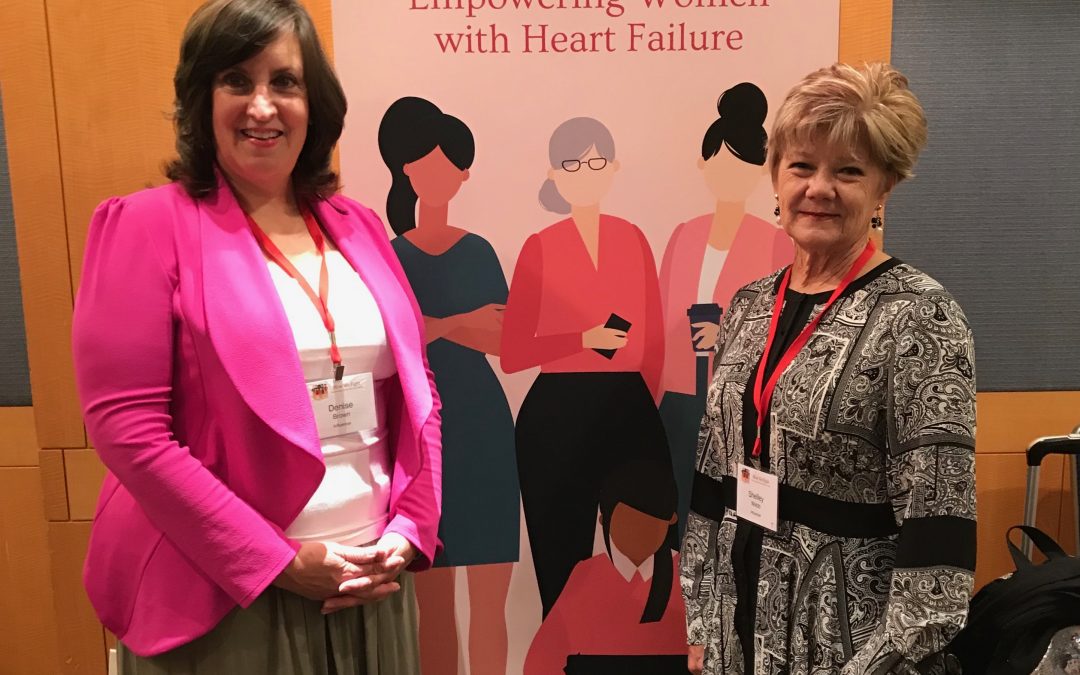*This is a sponsored post but as always, my opinions are my own. This content reflects my personal opinions and was not created or reviewed by Novartis.
Last week I attended the How We Fight event in New York City at the Crown Plaza Hotel Times Square as a guest of WomenHeart and Novartis. The How We Fight is a campaign is a program led by WomenHeart: The National Coalition for Women with Heart Disease and features real women living with heart failure. It was created to inspire, empower and activate other women to advocate for themselves and take action to manage and thrive with their heart failure. Also in attendance were cardiologists and representatives from Novartis.
Did you know that heart disease is the number ONE killer of women? It kills more women than all cancers combined. 1 in 4 women will die from heart disease.
I was amazed at the differences in the stories of the women who had been diagnosed with heart failure. One of them was a young woman marathoner whose physician said “I don’t think you should run anymore”… and not much else. Another kept going to her physician telling him she didn’t feel well and he suggested she “get away. Go on a girl’s trip!” The way she found out that she had heart failure was by applying for life insurance and failing the EKG portion of her physical. The insurance company said she neglected to disclose that she had heart failure and therefore her premiums would be much higher. It was a huge shock to her, of course, and to make matters worse, she received that notification on a Friday afternoon so she had no one she could call. A lady sitting at my table shared that she had a heart transplant a couple of years ago and she now runs half-marathons! None of these women looked typical of what you might think a heart patient would look like – no obesity, none of the “tell-tale” signs.
Heart failure is a chronic progressive condition in which the heart muscle is unable to pump the required amount of blood for the body’s needs. My father had heart failure due to coronary artery disease. Other risk factors are diabetes, high blood pressure, family history, valvular disease and obesity but anyone can develop it. And the thing is that women account for 50% of heart disease cases – it’s not just a disease of the males – and yet they often receive delayed diagnosis and treatment. Women are less likely to be given medications and devices to help treat their disease. Depression can also be associated with heart disease and women are more likely to present with depression than men.
Women experience heart disease differently.
Symptoms of heart disease in women:
Shortness of breath
Chest pain or discomfort
Weakness or fatigue
Unusual tiredness or anxiety
Back, neck, jaw or low shoulder pain
Nausea or upset stomach
Lightheadedness or dizziness
Breaking out in a cold sweat
May also include coughing, depression and/or weight gain
Things that may help:
- Eat a plant-heavy diet with plenty of fruits and vegetables
- Aim for a healthy weight
- Lower your stress levels – avoiding stressful situations, learning to say ‘No” and practicing meditation could help
- Exercise regularly – aim for 30 minutes of moderate activity each day
- If you smoke, quit
To learn more about heart disease or to find support for yourself or a friend with heart disease, visit womenheart.org.
LEARN TO LOVE YOUR LIFE AGAIN
 Do you feel like you need to hit the REFRESH button on your life? Download our free guide and begin to create your best life yet!
Do you feel like you need to hit the REFRESH button on your life? Download our free guide and begin to create your best life yet!



